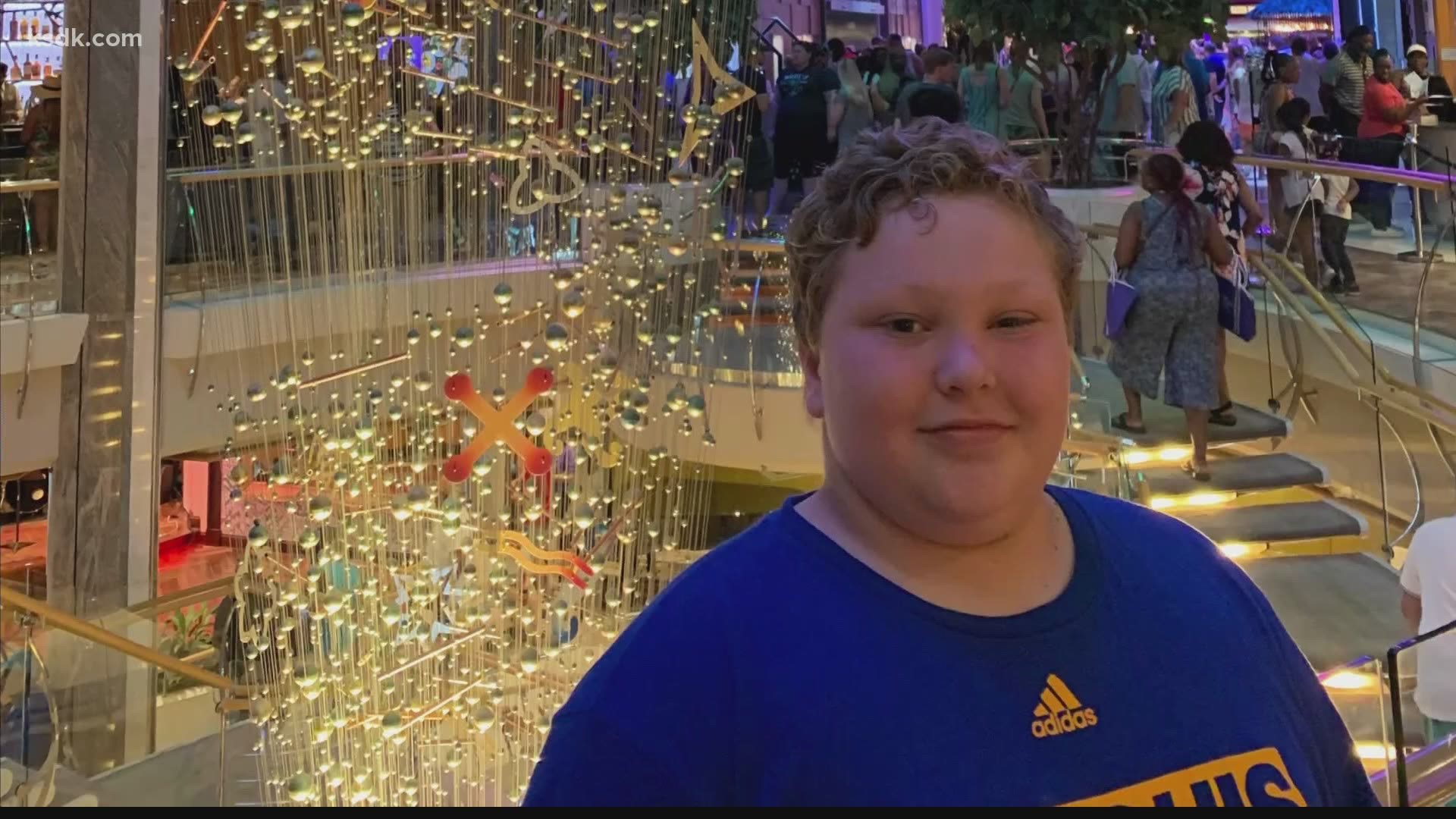ST. LOUIS — "It just went really fast," Angela Kender said.
Kender's mother, Dr. Gaye Griffin-Snyder, tested negative for COVID-19 the first time she was admitted to the hospital last May.
She went back a week later, with more severe symptoms. That time, she tested positive for the virus.
"It was less than a week, and she was dead," Kender said. "It was horrible."
In the 9 months since her mother's death last June, Kender has been forced to try to heal without even being able to honor her mother's life with a ceremony.
"I still haven't had a service for her," Kender said. "It's not safe to do that."
She did honor her mother's life by taking photos of people who lost their battles with COVID-19 to Jefferson City to push for a state mask mandate.
"I think we had 1,400 deaths in Missouri and like 140,000 nationwide," Kender said.
This week, the United States surpassed the 500,000 mark for COVID-related deaths. A reality, Kender said she could not have imagined.
"I wouldn't have believed it," Kender said. "I would have believed that we would have responded appropriately and we would have protected ourselves and our communities."
Stephanie Franek said she can't believe the statistic either.
"After losing 500,000 Americans, how you can believe it's not real?" Franek said.
In November, Franek's 13-year-old son was the first child to die from COVID-related complications in Missouri. According to the Missouri Department of Health and Senior Services, that number is now four.
RELATED: 'It's rare, but it can happen' | Pediatrician reacts to Missouri's first child COVID-19 death
"COVID ravaged my entire family," Franek said. "We lost my sister five weeks after we lost my son."
Franek also battled the virus.
She said she was able to have a ceremony for her son, but she limited the number of guests, masks were required and guests were socially distant. She said a number of her loved ones couldn't attend because they had COVID. Even immediately following her son's death, she wasn't able to be around loved ones because she was quarantined.
"I needed my family around me," Franek said.
As both women continue to try to navigate their healing journeys, they are forced to do so under the weight of the pandemic that caused their grief.
There's no sense of closure or finality, but there is a sign of hope.
In the vaccine.
Now, there are concerns. Franek, who is a nurse, said she's concerned people are using the vaccine as an excuse to stop the precautions in place to stop the spread. Kender said she's disappointed in the issues with Missouri's roll out plan.
However, both women remain optimistic.
"The vaccine is something I hope will end this pandemic," Franek said.
While it can't bring back the hundreds of thousands of lives lost, they hope it can clear the way for the families of those victims to be able to fully focus on healing.
"There is going to be so much ongoing need for people who have been left behind and for the healthcare workers who stepped up to help and save us," Kender said.

